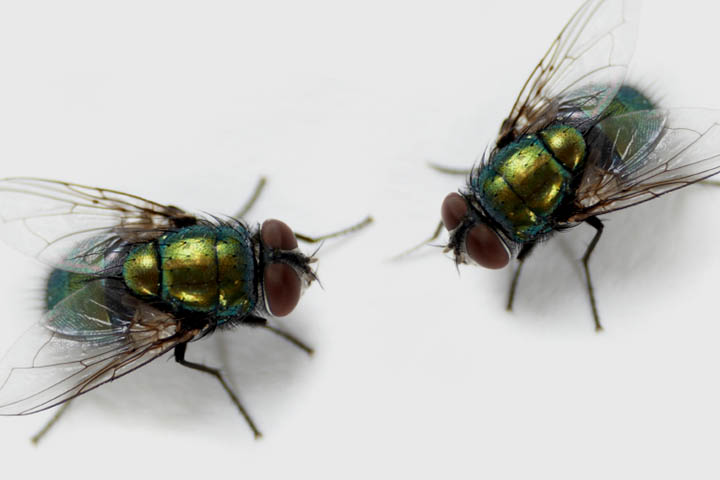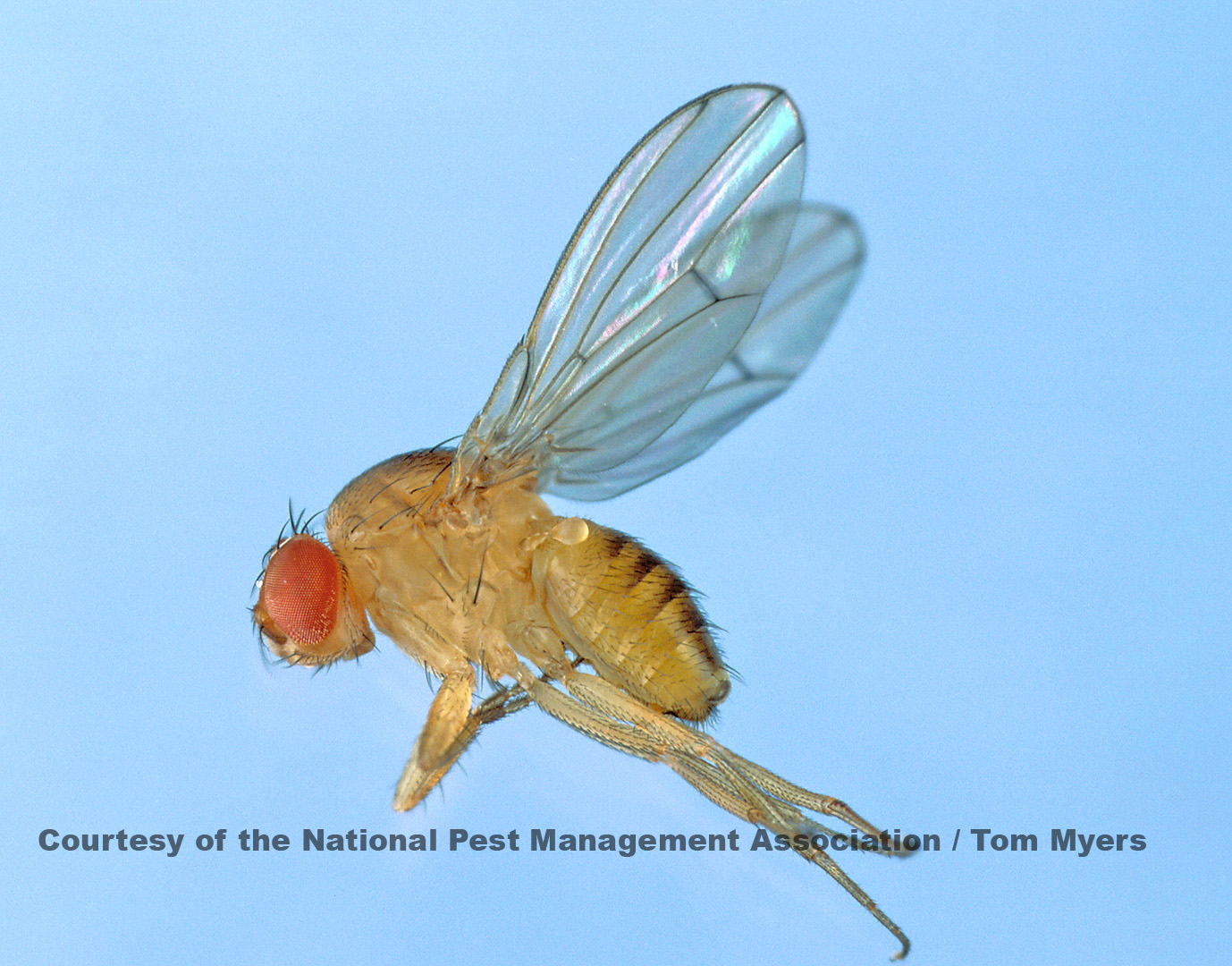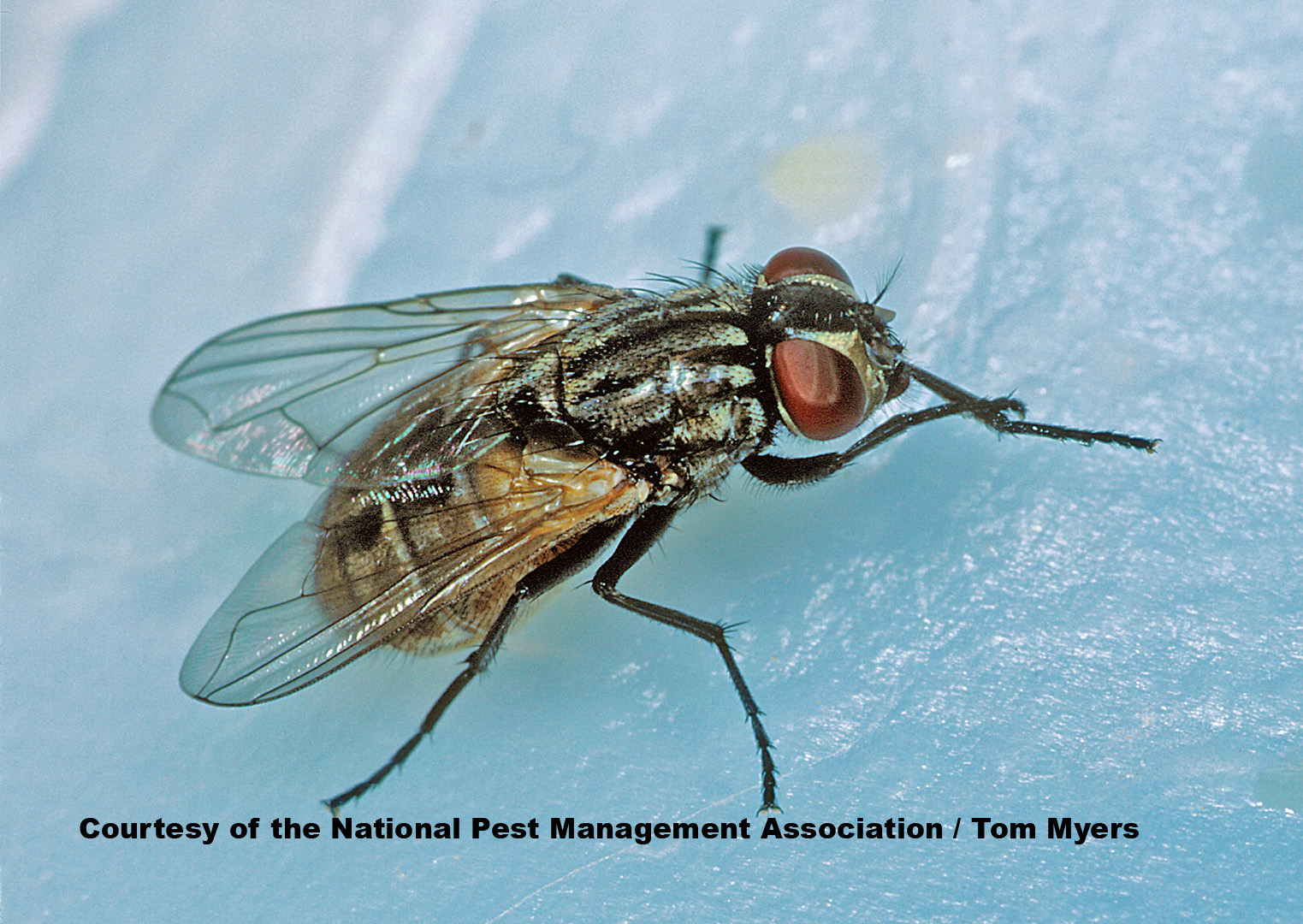Fly Facts for Kids
Did you know? The housefly tastes with its feet, which are 10 million times more sensitive to sugar than the human tongue. Talk about a sugar rush!

Explore Fly Facts for Kids
Types of Flies
Fly Facts for Kids
- There are more than 120,000 species of flies worldwide. About 18,000 found in North America. The most common species are houseflies, fruit flies, and horse flies.
- Most flies live an average of 21 days and take on various shapes throughout their short lives.
- A female housefly can lay up to 600 eggs in her short lifetime.
- Flies eat pretty much anything, from fruit to animal fecal matter (as in poop — ew!).
- They sneak inside houses and buildings in search of food.
- Want to know a secret place where you may find fruit flies? Your garbage disposal. But don’t stick your hand in there looking for any.
- Fruit flies have red eyes.
- Fruit flies can lay up to 500 eggs! Not all these eggs turn into little fruit fly babies, but that is still a lot of eggs.
- Flies can lay their eggs in garbage cans, compost piles, waste, and rotting plants and animals.
- Baby flies are called larvae but they are also known as maggots. Maggots can be a helpful bug. Doctors sometimes use them to help people who have hurt their skin or been burned. Why would doctors put bugs on your skin? Because maggots can help people heal by eating the infection. You could call them a doctor’s team of nibbling nurses.
- Do you think male or female house flies are bigger? If you guessed female, you are correct! This means that if you were a house fly that your mom and your sisters would be the biggest members of your family.
- How do you know if a house fly is nearby? Listen for a soft buzzing sound.
- Flies are dirty! They can mess with our food by transferring diseases like malaria, salmonella, and tuberculosis.
- Flies are attracted to light – maybe because they use it to guide them, they’re looking for food, or are trying to escape from predators.
- You can make a fly swatter with simple craft supplies!
Keep reading to see more fly facts for kids.

Fruit Fly Facts for Kids
Fruit flies get their name from their love of fruit! You may have noticed them in your house hanging out around kitchens or trash cans because they smell ripe or rotting produce. Fruit flies are mostly just nuisances, but some may transmit diseases.
Fruit flies only live for 8-10 days. In that time, females lay around 500 eggs, using old, rotting fruit or vegetables as their nest. Yes, these flies love fruit so much that they eat it and live in it.
You can view more information about fruit flies for kids below or discover The Fly or The Egg science experiment!
- Size: 1/8"
- Shape: Small, oval
- Color: Tan
- Legs: 6
- Wings: Yes
- Antenna: Yes
- Common Name: Fruit fly
- Kingdom: Animalia
- Phylum: Arthropoda
- Class: Insecta
- Order: Diptera
- Family: Drosophilidae
- Species: Drosophila melanogaster
What Do Fruit Flies Eat?:
Fruit flies eat rotting food like old, mushy fruits and vegetables. They also like fermenting liquids like beer, wine, and liquor.
Where Do Fruit Flies Live?:
Fruit flies are commonly found in homes, restaurants and other facilities where food is processed. They love hanging out in garbage that has been sitting around. You can find them in drains, garbage disposals, trash cans, mop buckets, and anywhere with exposed rotting food… gross!
Are Fruit Flies Harmful to Humans?:
While fruit flies don’t bite, they do carry some health risks since they like to be in unsanitary conditions like garbage dumps and trashcans. When they are around, especially in kitchens near the food we eat, humans can become sick.
How Do I Keep Fruit Flies Away?:
Fruit flies hate being clean! To make your home less comfortable for fruit flies, you should:
- Keep your home clean.
- Remove kitchen trash every day and keep kitchen counters clean.
- Immediately remove old food from your home.
Or you can keep the flies out of the house with your very own Fly Swatter made with materials you probably already have at your house!
Find more fruit fly facts for kids and parents alike at the official NPMA website.

House Fly Facts for Kids
We call these types of flies house flies because, you guessed it, you can find them in your house. Adult house flies can grow to one-quarter of an inch long and usually live between 15 and 25 days. House flies taste with their feet, which are 10 million times more sensitive to sugar than the human tongue! View more interesting house flies facts for kids below.
- Size: 1/4"
- Shape: Small, oval
- Color: Dark grey
- Legs: 6
- Wings: Yes
- Antenna: Yes
- Common Name: House fly
- Kingdom: Animalia
- Phylum: Arthropoda
- Class: Insecta
- Order: Diptera
- Family: Muscidae
- Species: Musca domestica
What Do House Flies Eat?:
House flies can only eat liquids. They are limited in what they can eat because they do not have teeth or a stinger. Their mouths absorb food like a sponge. But that’s okay, because they have a secret superpower that is super gross.
House flies can turn many solid foods into a liquid by spitting or throwing up on it. Their tongues are shaped like straws so they can suck up their food. They eat any wet or decaying matter, but they are particularly attracted to pet waste because it’s very smelly and is easy for them to find.
Where Do House Flies Live?:
House flies like to live close to home. They tend to stay within 1-2 miles of where they were born but will travel up to 20 miles to find food. They spend their time and keep their babies in garbage cans, compost heaps and pet areas.
Can House Flies Hurt Me?:
House flies don’t sting or bite, but they are dirty, which means they can get you sick. These pests have been known to carry over 100 different kinds of disease-causing germs, so don’t make a habit of letting them hang around you or your food.
How to Avoid House Flies in Your Home:
House flies are the most comfortable in a dirty place – so keep areas clean to keep house flies from moving in!
- Keep your home clean.
- Remove trash regularly and seal your garbage cans.
- Clean up pet waste immediately.
- Use fine mesh screens on doors and windows to prevent flies from getting into your home.
Parents and teachers can find more house fly facts for kids at the official NPMA website.

